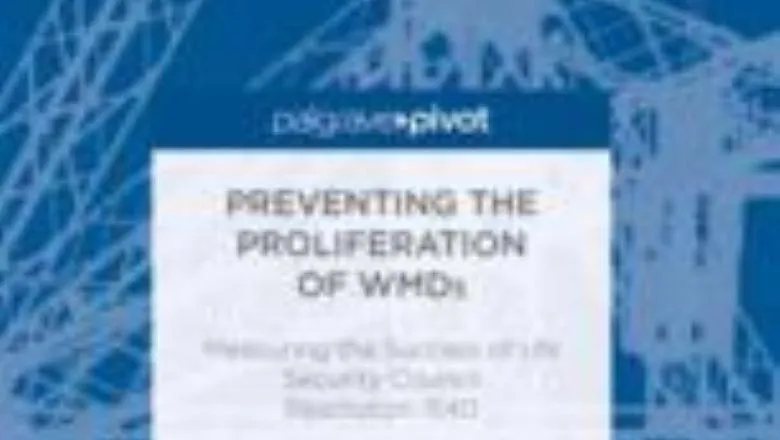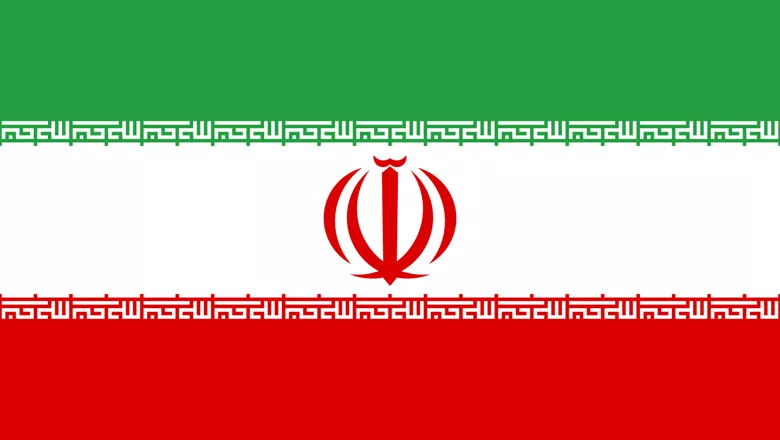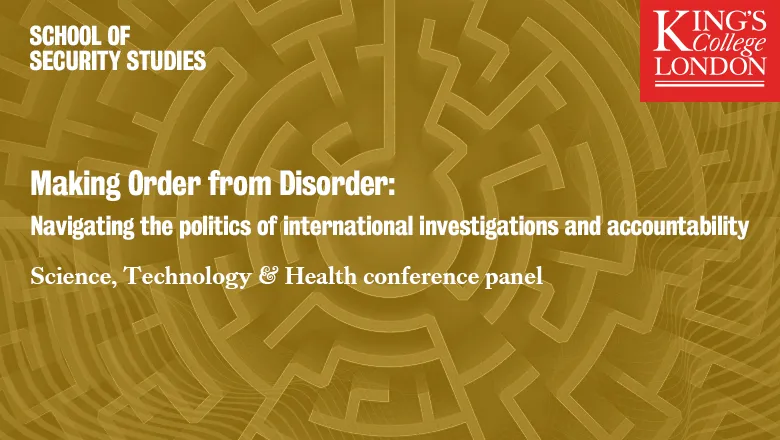
Biography
Dr Daniel Salisbury is a Visiting Research Fellow at the Centre for Science & Security Studies (CSSS) within the Department of War Studies. Until April 2023, he was a Senior Research Fellow at CSSS and undertook a three-year Leverhulme Trust Early Career Fellowship at the Centre on arms embargoes. Dr Salisbury is also an Associate Fellow at the Royal United Services Institute (RUSI). He also previously held positions at the Henry L Stimson Center, Harvard Kennedy School’s Belfer Center for Science and International Affairs, the James Martin Center for Nonproliferation Studies, CSSS and the International Institute for Strategic Studies (IISS).
Dr Salisbury is the author of Secrecy, Public Relations and the British Nuclear Debate: How the UK Government Learned to Talk about the Bomb, 1970-1983 (Routledge Cold War History series, 2020). He is also the author or co-author of a wide range of journal articles, book chapters and reports, and the co-editor of books on Open Source Intelligence (OSINT) and UN Security Council resolution 1540.
Dr Salisbury has acted as a Subject Matter Expert at over 40 sanctions, export control and nuclear security control capacity building workshops in around 20 jurisdictions around the world. He holds a PhD in War Studies, an MA in Science and Security and a BA in War Studies from King’s College London. He is a Fellow of the Royal Historical Society (FRHistS), sits on the editorial board of the Strategic Trade Review and became an Associate of King’s College London (AKC) in 2010.
Research
- Illicit trade and proliferation networks
- Arms embargoes
- Sanctions and export controls
- Cold War history
- British nuclear history
- Nuclear security
- Nonproliferation
- Nuclear and missile programmes
Dr Salisbury's research interests encompass a number of areas: nuclear and intelligence history, nuclear and conventional arms proliferation, countering illicit networks and preventing nuclear terrorism. His three-year Leverhulme Trust research project sought to situate his research on illicit trade and proliferation networks within a broader picture of technology and arms transfers, defence industrial base issues and great power politics during the Cold War.
Publications
Books
- Secrecy, Public Relations and the British Nuclear Debate: How the UK Government Learned to Talk About the Bomb, 1970-1983 (UK: Routledge, 2020).
- Preventing the Proliferation of WMDs: Measuring the Success of UN Security Council Resolution 1540 (UK: Palgrave Macmillan, 2018) [Co-edited with Ian Stewart and Andrea Viski]
- Open Source Intelligence in the Twenty-First Century: New Approaches and Opportunities (UK: Palgrave Macmillan, 2014) [Co-edited with Matthew Moran and Christopher Hobbs]
Book chapters
- ‘The Downsides of the Supply-Side? The Underappreciated Costs and the Unintended Consequences of Supply-Side Nonproliferation Measures’ in David Arceneaux, Stephen Herzog and Ariel Petrovics eds. Atomic Backfires: Why Nuclear Policies Fail (Forthcoming 2024)
- ‘The United Nations Security Council and the 1540 Committee’ in The Oxford Handbook of Nuclear Security (2023) [Ben Kienzle and Daniel Salisbury]
Research articles
- ‘Murder on Waterloo Bridge: placing the assassination of Georgi Markov in past and present context, 1970 – 2018’, Contemporary British History 37, no.1 (2023) [Daniel Salisbury and Karl Dewey]
- ‘Countering a Technological Berlin Tunnel: North Korean Operatives, Helicopters and Intelligence in the Cold War Illicit Arms Trade, 1981-1986’, Intelligence and National Security 37, no.5 (2022)
- ‘Of Moles and Missiles: Anatomy of a North Korean Arms Deal?’, Nonproliferation Review 28, no.2-3 (2022)
- ‘Spies, Diplomats and Deceit: Exploring the Persistent Role of Diplomatic Missions in North Korea’s WMD Proliferation and Arms Trafficking Networks’ Asian Security 17, no.3 (2021)
- ‘Arming Iran from the Heart of Westminster? The Iranian Military Procurement Offices, Rumours and Intelligence, 1981-1987’, Intelligence and National Security 35, No.7 (2020)
Policy papers
- ‘Profiting from Proliferation? North Korea’s Exports of Missile and Nuclear Technology’ (with Darya Dolzikova). RUSI Occasional Paper (December 2023)
- ‘Clipped Wings? The Impact of Arms Embargoes on Russian Air Power in Ukraine and Beyond’, Freeman Air and Space Institute (FASI) Paper (February 2023)
- ‘From Missions to Missiles: North Korea’s Diplomats and Sanctions-Busting’, RUSI Emerging Insights Report (14 November 2022)
- ‘The Long Arm: How U.S. Law Enforcement Expanded its Extraterritorial Reach to Counter WMD Proliferation Networks’ (with Aaron Arnold). Belfer Center/Managing the Atom Paper (February 2019)
Media articles
- ‘North Korea’s Diplomatic Sanctions-Busting Network Adapts to Changing Times’, RUSI Commentary (22 November 2023)
- ‘You Have to Be There: On Site Visits in International Nuclear Security Engagement’, Stanley Center for Peace and Security Adventures in Nuclear Risk Reduction series (17 April 2023)
- ‘Triple Threat: Russia, Iran and North Korea trade arms to get around sanctions’, Bulletin of the Atomic Scientists (28 December 2022) [Darya Dolzikova and Daniel Salisbury]
- ‘Can the Private Sector Help Cut Russia’s Silicon Lifeline?’, RUSI Commentary (18 August 2022)
- ‘Will North Korea Sell Its Nuclear Technology?’, Scientific American (25 September 2017)
Further details
Research

Economic Conflict & Competition Research Group
The ECCRG aims to be an academic centre of excellence for developing sustained, inter-disciplinary research on the study of Economic Warfare.

Nuclear security implications of counterfeit, fraudulent and suspect items
King’s academics are working on a project for the IAEA focused on the nuclear security implications of CFSIs in the nuclear supply chain.
Project status: Ongoing
News
King's academics publish the definitive book on nuclear security with Oxford University Press
With over 60 contributors spanning six continents, and coverage of historical, current and emerging issues, The Oxford Handbook of Nuclear Security brings the...

New publication: 'Murder on Waterloo Bridge: placing the assassination of Georgi Markov in past and present context, 1970 - 2018'
Daniel Salisbury and Karl Dewey published a new peer reviewed article in Contemporary British History journal exploring the assassination of Bulgarian...

Secrecy, Public Relations and the British Nuclear Debate
Dr Daniel Salisbury's forthcoming book explores the British government’s efforts to make the case for nuclear weapons and public debates about nuclear weapons...
Preventing the proliferation WMDs: measuring the success of UNSCR1540
This edited volume provides a fresh analysis for researcher and practitioners regarding United Nations Security Council resolution 1540, the status of its...

Proliferation case study: Nicholas Kaiga's efforts to supply aluminium tubes to Iran
This case study details the attempts of an unnamed individual – Individual A – to illicitly procure controlled aluminium tubing. Individual A owns companies...

Trade controls and non-proliferation: compliance costs, drivers and challenges
Project Alpha researcher, Daniel Salisbury, recently published an article in the journal Business and Politics entitled ‘Trade controls and non-proliferation:...

Events

Making Order from Disorder: Navigating the Politics of International Investigations and Accountability
Giving a fresh perspective of the conduct and implications of International investigations
Please note: this event has passed.
Features
Adaptation Under Pressure: Russian and Ukrainian Air Power and Domain Capabilities
Watch Dr Reyhaneh Fallah- Noshiravani, Dr Julia Muravska and Dr Daniel Salisbury as they discuss how states address shortcoming in air power and air domain...

Why arms embargoes on countries such as North Korea fail
More insight is needed on how to prevent the proliferation of potentially destabilising military capabilities.

Research

Economic Conflict & Competition Research Group
The ECCRG aims to be an academic centre of excellence for developing sustained, inter-disciplinary research on the study of Economic Warfare.

Nuclear security implications of counterfeit, fraudulent and suspect items
King’s academics are working on a project for the IAEA focused on the nuclear security implications of CFSIs in the nuclear supply chain.
Project status: Ongoing
News
King's academics publish the definitive book on nuclear security with Oxford University Press
With over 60 contributors spanning six continents, and coverage of historical, current and emerging issues, The Oxford Handbook of Nuclear Security brings the...

New publication: 'Murder on Waterloo Bridge: placing the assassination of Georgi Markov in past and present context, 1970 - 2018'
Daniel Salisbury and Karl Dewey published a new peer reviewed article in Contemporary British History journal exploring the assassination of Bulgarian...

Secrecy, Public Relations and the British Nuclear Debate
Dr Daniel Salisbury's forthcoming book explores the British government’s efforts to make the case for nuclear weapons and public debates about nuclear weapons...
Preventing the proliferation WMDs: measuring the success of UNSCR1540
This edited volume provides a fresh analysis for researcher and practitioners regarding United Nations Security Council resolution 1540, the status of its...

Proliferation case study: Nicholas Kaiga's efforts to supply aluminium tubes to Iran
This case study details the attempts of an unnamed individual – Individual A – to illicitly procure controlled aluminium tubing. Individual A owns companies...

Trade controls and non-proliferation: compliance costs, drivers and challenges
Project Alpha researcher, Daniel Salisbury, recently published an article in the journal Business and Politics entitled ‘Trade controls and non-proliferation:...

Events

Making Order from Disorder: Navigating the Politics of International Investigations and Accountability
Giving a fresh perspective of the conduct and implications of International investigations
Please note: this event has passed.
Features
Adaptation Under Pressure: Russian and Ukrainian Air Power and Domain Capabilities
Watch Dr Reyhaneh Fallah- Noshiravani, Dr Julia Muravska and Dr Daniel Salisbury as they discuss how states address shortcoming in air power and air domain...

Why arms embargoes on countries such as North Korea fail
More insight is needed on how to prevent the proliferation of potentially destabilising military capabilities.

